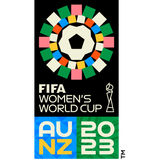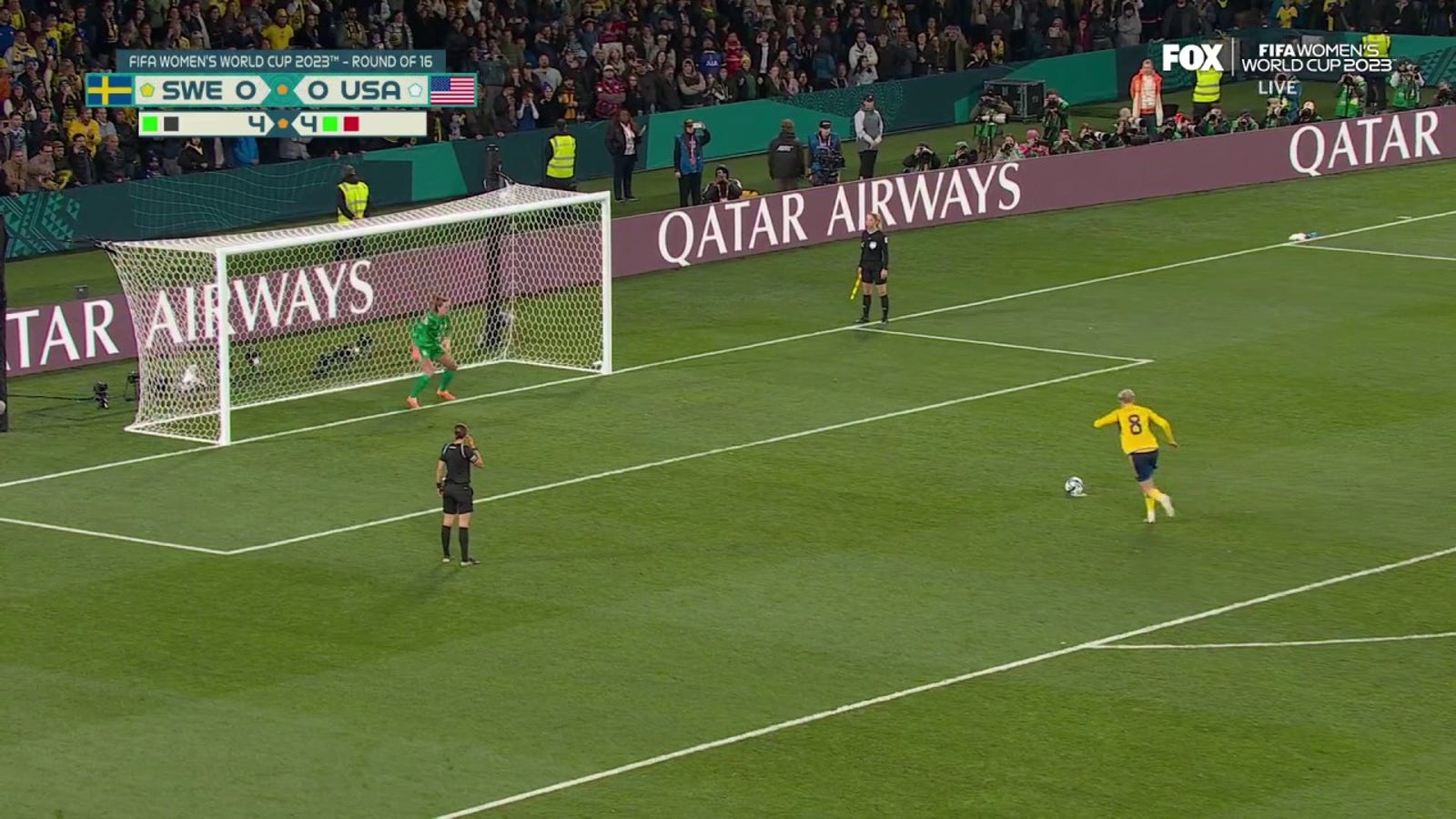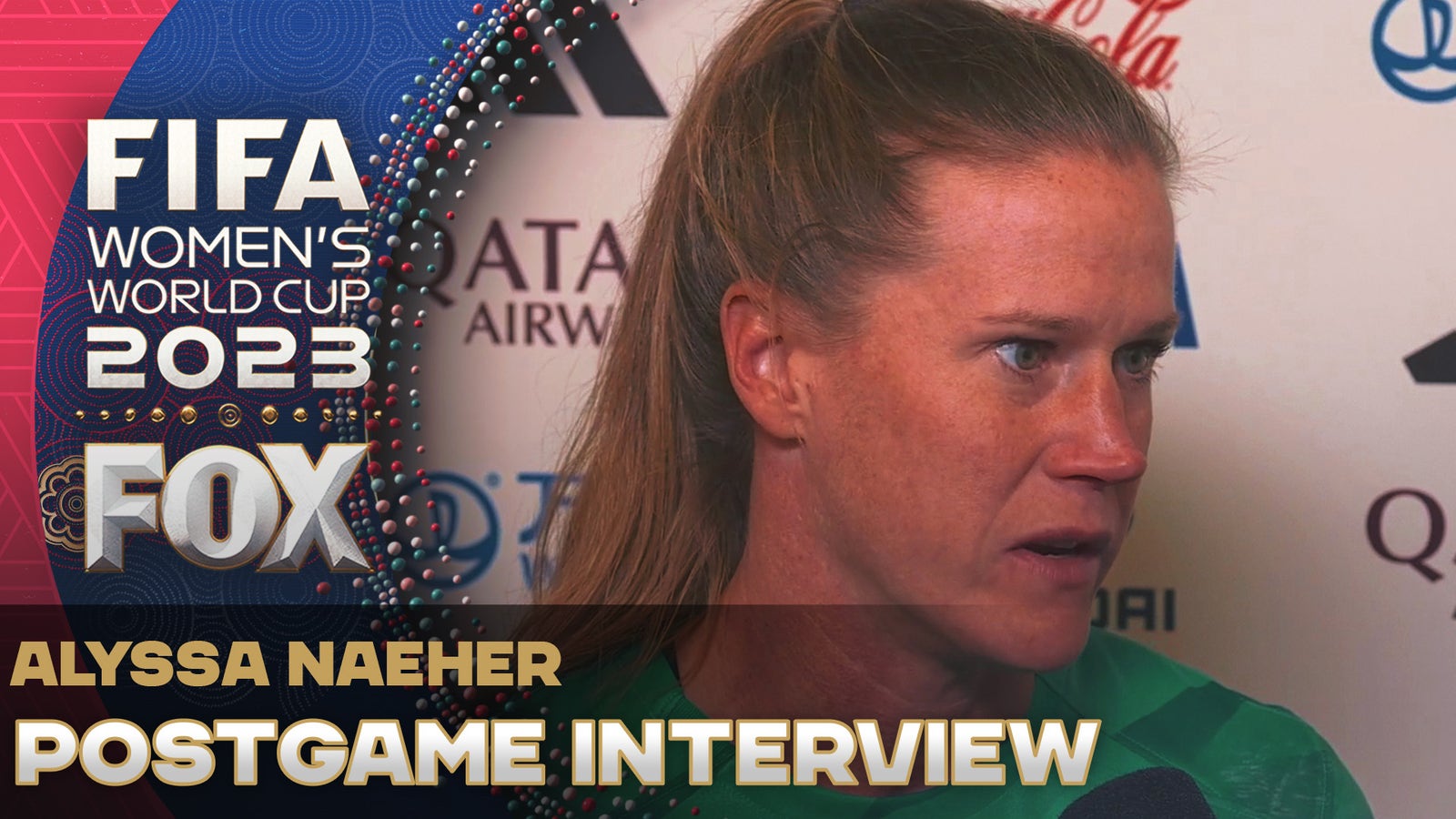
How USA's fate was sealed by goal-line technology
When we think back on all the images to come from the United States' dramatic World Cup exit Sunday — from Megan Rapinoe's disbelieving smile to Sophia Smith's tears to Sweden's celebrations — there came the ultimate reminder that, yes, this is 2023.
For the visual that will linger long past when all other detail has been lost, more than any emotion-filled face or dramatic save or crunching tackle, was a computerized image of a soccer ball, a goal line and a green box that read "GOAL."
That's how the USA's fate was sealed with goal-line technology, much-maligned but strangely popular in Sweden these days, adjudicating that Lina Hurtig's final penalty kick had indeed crossed the line by what was perhaps the width of a stick of chewing gum, and that's if you're being generous.
Whew, what to say? There are small margins, and then there are ones that are so infinitesimally tiny as to blow the mind.
Watch the replay again of how Alyssa Naeher leaped to parry Hurtig's strike, then doubled back on herself to try to stop it from rebounding from her hands and into the goal.
If she'd made contact with the ball, what, one ten-thousandth of a second earlier, might it have been enough for that wretched graphic to have said it didn't cross the line instead?
It makes the head hurt to think of such things.
Then consider that if this had happened in 2015, or any other point before goal-line technology or VAR (Video Assistant Referee) became part of top-level soccer, it is likely that referee Stephanie Frappart's original call would have stood, and that the shootout would have continued.
Extraordinary, isn't it, that a game of soccer could be determined so narrowly? I mean, look at the darn thing, you can't see even a speck of daylight in between the edge of the ball and the crust of the line.
Part of the Sweden celebrations involved its players staring at a digital drawing on a telephone in the locker room.
Naeher is quiet and humble and doesn't particularly love interviews but might have given FOX's Jenny Taft the best soundbite of the tournament when she said: "We just lost the World Cup by a millimeter."
Remember when NFL referee Gene Steratore brought out an index card to help him on an unusually tight first-down measurement a few years ago? This one was tighter.
We know all we think we need to know about VAR. It hasn't always been popular and can slow the game down at certain times. In the World Cup, 19 video referees sit at a central location and have been tasked with reviewing the action.
In this tournament, there has been the welcome addition of on-field referees explaining their call, NFL-style, via a headset and microphone.
VAR can't make the referee's decision for them, but does allow for a more informed choice and uses specific technology — like goal-line technology — to make borderline judgments on positional things like offsides and whether goals crossed the line.
If it benefits you, you love it. If you're a USWNT fan today, its inventors probably aren't going to get added to the holiday card list.
In Sweden, the narrative was naturally different. While discussions in America were of coach Vlatko Andonovski's subs — one, Kristie Mewis, scored in the shootout, but Rapinoe and Kelley O'Hara both missed — and of what happens now, Sweden had their own topics to dive into.
In Scandinavia, there was a sense of awe about the ice-cold composure of 20-year-old Hanna Bennison, who launched a missile down the middle to keep her team the shootout after there had been four straight misses, two from each team, immediately before her.
And of Magdalena Eriksson, the veteran defender who scored with a striker's touch and who knew what it meant to achieve what had for so long seemed impossible to the rest of international soccer, sending the USWNT home early from a World Cup.
"Little, little Sweden beats out big USA," she told Expressen.
Good for Sweden. The Olympic runner-up showed pluck sand resiliency, plus just enough mental serenity to remain calm when it most mattered.
The margin at the very end was so slender but there was no element of luck to it, just the reality of the situation. The laws of the game say the ball has to cross the line, and it did, even if only by the tiniest amount.
Goal-line technology was the technological, unemotional, soulless purveyor of bad news to the Americans. It was, no more and no less, a correct call that delivered a painful outcome, an early exit and an image that won't soon be forgotten.
Martin Rogers is a columnist for FOX Sports and the author of the FOX Sports Insider newsletter. Follow him on Twitter @MRogersFOX and subscribe to the daily newsletter.



